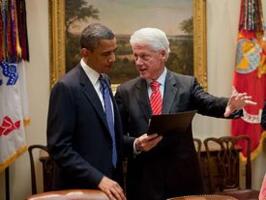October 20, 2011
Reflecting national trends, businessman Herman Cain has now jumped to the front of the Republican pack in Iowa.
A new Rasmussen Reports telephone survey of Likely Iowa caucus-goers shows that Cain is in front with 28% followed by former Massachusetts Governor Mitt Romney at 21%. Congressman Ron Paul is a distant third at 10% followed by former House Speaker Newt Gingrich at 9%, Congresswoman Michelle Bachmann at 8%, and Texas Governor Rick Perry at 7%. The sixth place finish for Perry is a sharp decline from early September when Perry was the frontrunner both nationally and in Iowa. (To see survey question wording, click here).
Former Senator Rick Santorum picks up 4% of the vote and former Governor Jon Huntsman is at 2%. Another 4% would prefer some other candidate and 8% are not sure.
Only one-third of the caucus-goers (32%) are certain of their vote and don’t expect to change their mind. Among these voters, 30% prefer Cain, 22% Romney, and 17% Paul.
Among those absolutely certain they will show up and participate in the caucus, Cain leads Romney 31% to 18%. Many have criticized the Cain campaign for not having a strong organization in Iowa which is seen as essential to turning out the vote. According to such conventional analysis, Cain might be at risk of raising expectations too high and then underperforming.
(Want a free daily e-mail update? If it's in the news, it's in our polls). Rasmussen Reports updates are also available on Twitter or Facebook.
The survey of 800 Likely Iowa Republican Caucus Participants was conducted on October 19, 2011 by Rasmussen Reports. The margin of sampling error is +/- 4 percentage points with a 95% level of confidence. Field work for all Rasmussen Reports surveys is conducted by Pulse Opinion Research, LLC. See methodology.







